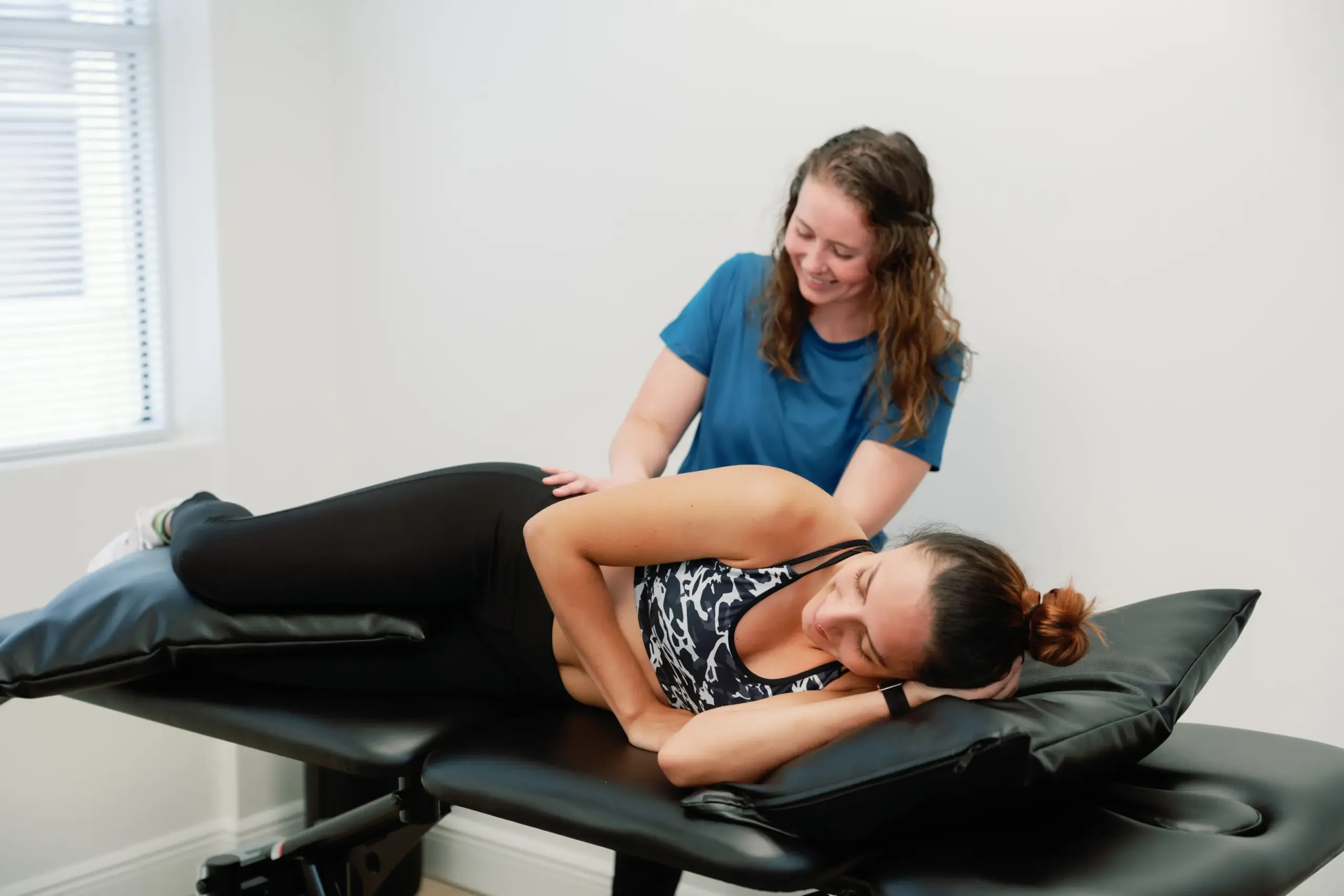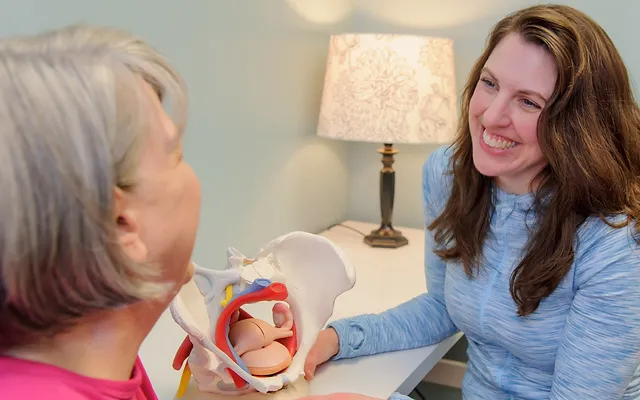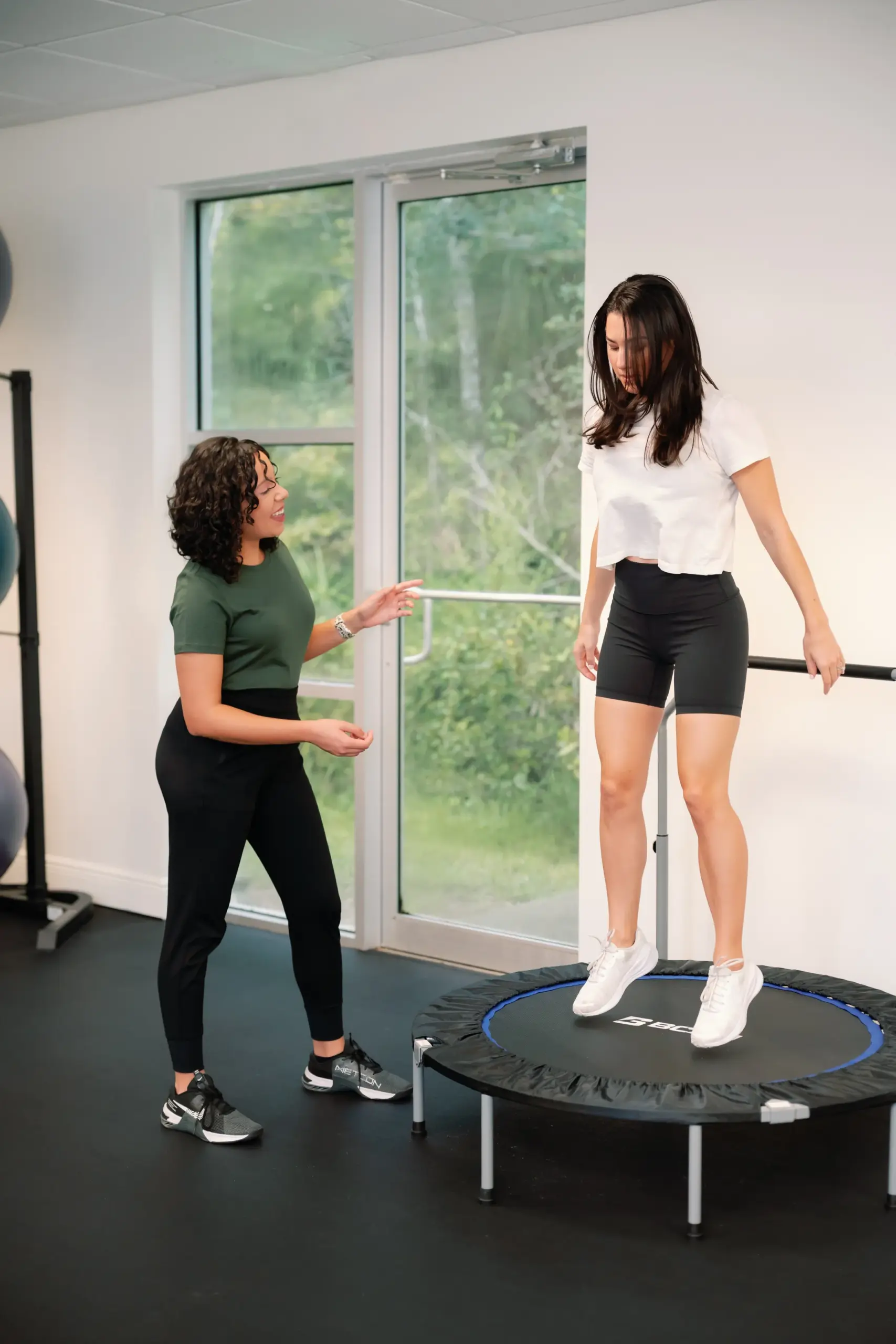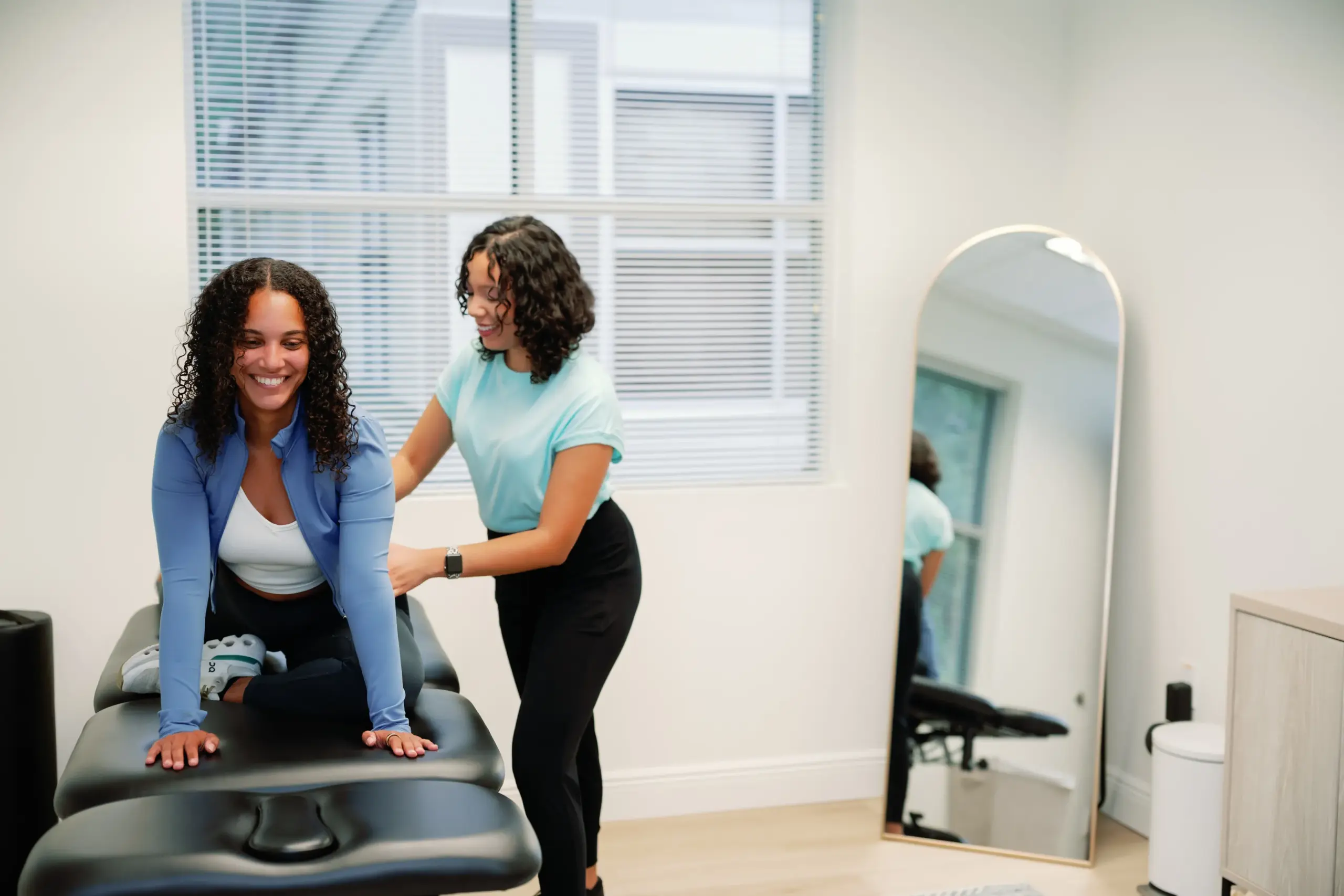Wesley Chapel, FL
2640 Cypress Ridge Blvd, Suite 103
Wesley Chapel, FL 33544
P: (813) 993-4212
F: (813) 738-1562
E: hello@blisspelvichealth.com
Pelvic Floor Therapy in Wesley Chapel, FL
Feel Confident, Capable, and Free to Live the Life You Want
Most patients feel relief after their first session!




Top-Rated Pelvic Floor Therapists for Women in Wesley Chapel, FL
At Bliss Pelvic Health, women’s health isn’t just part of what we do. It’s our passion and our specialty. We help active women, pregnant and postpartum moms, and women at every stage of life feel strong, supported, and in control of their bodies.
A lot of people think pelvic floor therapy is only for new moms… or that it’s all about kegels. (Spoiler alert: it’s not!) Pelvic health is so much more than that. We look at your whole body, how you move, breathe, and live, so your results actually last.
Our goal is simple: for you to feel confident, capable, and free to live the life you want without your pelvic floor holding you back.
Trusted by Organizations Across Tampa Bay

Personalized Care from Our Team in Wesley Chapel
Your body tells a story, and it’s completely unique. That’s why your care should never come from a one-size-fits-all video or generic program.
A non-specialist might overlook the subtle ways your hips, core, back, breath, and pelvic floor are working together (or not working together). That’s where we come in.
Here’s what to expect with us: we start by listening. We want to understand your story, your goals, and what success means to you. Then, we guide you through a full-body check, and if it’s right for you (with your full consent), a gentle pelvic floor assessment. From there, we explain everything in clear, simple language and build a plan that actually fits your life.
You leave not just with answers, but with a clear next step, support to keep you going, and a plan that finally connects the dots.

Success Stories & Testimonials
Our Proven Path: Assess, Address, Achieve
Assess
Your first visit is a 90-minute deep dive into you. We’ll sit down together, talk through your story and your health history, and map out the goals that matter most to you. Then, we’ll guide you through a full-body movement screen and (if it’s appropriate and you give full consent) a pelvic floor check. You’ll leave understanding the why behind your symptoms and the first steps to moving forward with confidence.
Address
This is where we put your plan into action. We keep it simple, practical, and tailored to your daily life. You’ll learn how to move with ease at work, at home, and in workouts. Most women start noticing small but meaningful changes early on…the kind that builds trust in your body again. We’ll check in regularly, adjust as needed, and keep you feeling supported, capable, and steady as you regain strength and control.
Achieve
This is the part we all love, when you start crushing your goals. Whether that means running without bladder leaks, lifting without fear, moving without pain, or enjoying intimacy without discomfort, you’ll feel the difference. For expecting mothers, this might mean feeling strong and prepared for birth. For postpartum moms, it’s regaining confidence in movement and daily life. No matter your stage, you’ll leave with the tools to keep your progress long-term and set new goals for what’s next.
Meet Our Team

Dr. Gabriella Pasos
PT, DPT, Cert. DN
Pelvic Health Specialist

Dr. Emily Bell
PT, DPT
Pelvic Health Specialist

Madeline Santana
Patient Care Coordinator
Our Services & Specialties

Birth Preparation
Are you pregnant and worried about the discomforts that come with childbirth? Are you looking for ways to prepare your body for the birthing process and make it as smooth as possible? Look no further!

Bladder Dysfunction
Bladder dysfunction is a general term used to describe a range of bladder-related problems that can affect anyone at any point throughout the lifespan.These problems can include urinary incontinence…


Bowel Dysfunction
Bowel dysfunction can present in many different ways including constipation, hemorrhoids, inability to control stool, urgency, and more. Our pelvic floor therapists can assess your body to develop an individualized…

Pelvic Organ Prolapse
Pelvic organ prolapse is a condition where the organs in the pelvis, such as the bladder, uterus, or rectum, drop down or bulge into the vaginal canal. It is a common condition that affects many women.


Pelvic Pain and Abdominal Pain
Pelvic pain can deeply impact your day to day life. Our pelvic floor therapists have taken advanced, specialized training and have a deep understanding of how to assess and treat the pelvic girdle, hips, spine…

Postpartum Return to Exercise
Returning to exercise postpartum can be daunting and overwhelming. You’ve got your 6 week clearance – now what? The internet can offer conflicting information regarding what exercises to integrate as you…


Prenatal and Postpartum Care
Our team of expert pelvic floor therapists possesses specialized, advanced training in treating musculoskeletal issues that may cause pain and dysfunction during both pregnancy and postpartum.

Sexual Pain & Dysfunctions
As pelvic floor therapists, we understand that sexual pain and dysfunction can be a challenging and sensitive issue for many individuals. Our team is dedicated to providing compassionate, trauma informed care…


Feel Strong, Confident, and Ready for Life in Wesley Chapel, FL
You deserve a body that lets you live, work, parent, and play without hesitation. Some women come to us with bladder leaks, urgency, or pelvic pain. Others come in with no symptoms at all because they want to be proactive, stay active, or prepare for birth.
No matter where you are, you deserve care that gives you clear answers and a plan that makes sense. Here’s what it looks like:
- Tell us your story. We want the full picture.
- Get a custom plan. One that fits your body and your lifestyle.
- Start your care. See small wins that build momentum.
- Reach your goals. Keep your progress and enjoy the freedom your body gives you

Get the Pelvic Health Care You Deserve
Your care should feel doable, not overwhelming. That’s why every plan we create is built around your life and your goals.
With us, you’ll know what to do, why it matters, and how to keep making progress. That means moving without bladder leaks, exercising with confidence, and feeling at ease in daily life and in the moments that matter most.
We keep it simple. We make it achievable. And we walk with you every step of the way.

Frequently Asked Questions
Do I need a doctor’s referral to get started?
Nope! In Florida, you can begin physical therapy without a referral. If your care extends past a certain point, we’ll coordinate directly with your provider so you don’t have to worry about the details.
Will there be an internal exam?
Only if it’s right for you and only if you say yes. You are always in control. We’ll explain what it involves, why it might be helpful, and what to expect. You can decline at any time, and we’ll use other approaches to help you reach your goals.
What should I wear to my session?
Whatever makes you comfortable! Leggings, shorts, a t-shirt, or if you’re coming straight from work, come as you are. We can help either way.
How often will I come in?
It depends on your goals and what we find. Many women begin with weekly sessions, then space them out as they improve. We’ll recommend what’s best for you, explain why, and adjust as needed to fit your life.
I tried kegels and they didn’t work. Can you still help?
Absolutely. Kegels are just one small piece of the puzzle. We look at your whole system—breath, core, hips, posture, and daily movement—to get results that last.
I tried YouTube videos and online programs. Why would this be different?
Because videos can’t see you. They can’t tell how your body moves or why your symptoms are happening. We test, explain, and tailor your care so you finally get answers and lasting results.
Do you see women during pregnancy?
Yes! Our approach is safe, gentle, and focused on your goals, like staying active, managing symptoms, and preparing for birth.
When should I come after birth?
We can support you right away with gentle guidance. For a full pelvic floor check, we usually wait until your provider clears you (around six weeks). If you need help sooner, we’ll get you in quickly so you don’t have to wait for relief.
Can I bring my baby?
Of course. Many new moms bring their babies along. Let us know what you need, and we’ll make sure the space works for both of you.
Do you work with my OB/GYN, midwife, or other providers?
Yes. With your permission, we’ll keep your care team updated. If your plan requires a provider review, we’ll handle that for you so it’s seamless.







